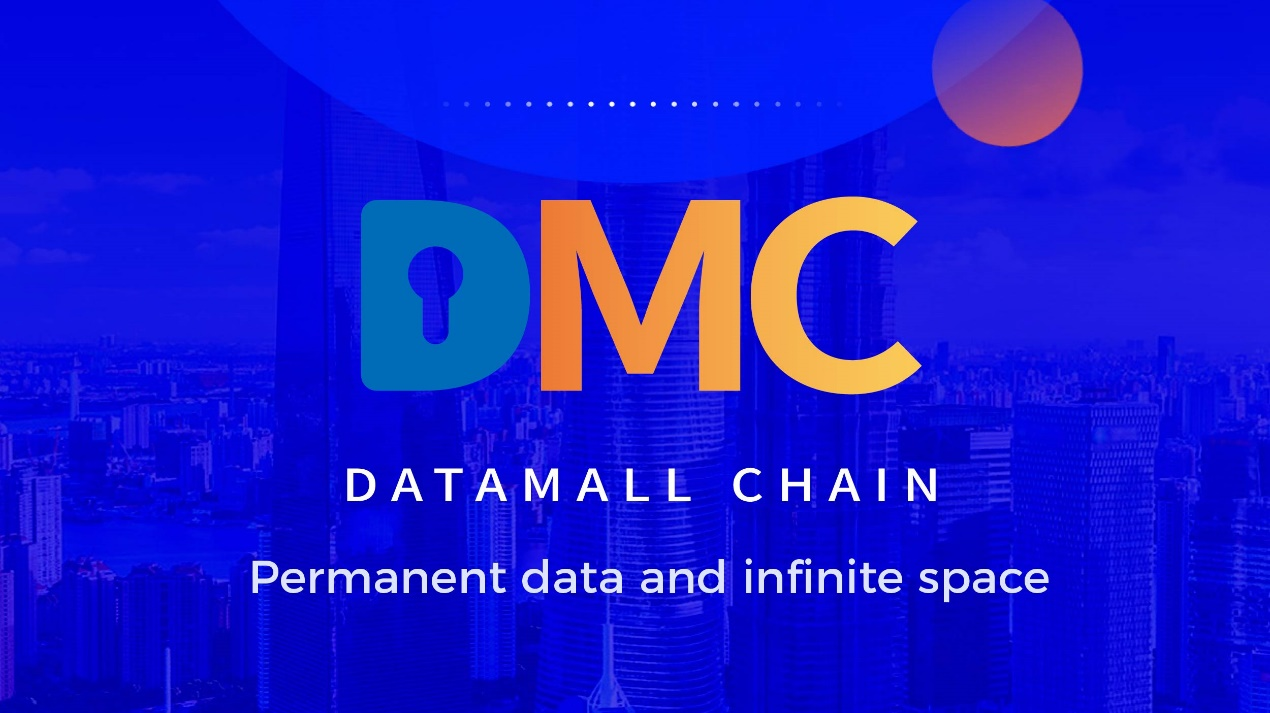Decentralized Storage Rising Star Datamall Chain Unique Mechanism Explained
Datamall Chain, a rising star in decentralized storage, has a unique mechanism. Here's how it works. 
With the arrival of the digital age, the explosion of data has led to a continuous increase in storage demand. Traditional centralized storage methods have limitations in terms of security, reliability, and sustainability, while decentralized storage provides a more secure, decentralized, and scalable solution.
After researching most of the well-known decentralized storage solutions on the market, today we will introduce Datamall Chain, which is one of the best in this field. According to its design, it can maximize the matching and trading between real data storage demanders and data storage service providers. This article aims to use simple and concise language to explain Datamall Chain’s governance system and incentive mechanism in detail, providing reference material for users who want to participate.
How to Participate in Datamall Chain?
Datamall Chain adopts the Proof of Storage Service (PoSS) consensus algorithm. Providers/mine workers stake DMC to mint PST and provide storage services, also known as mining. Specifically, the PoSS consensus algorithm generates corresponding voting rights according to the number of PSTs minted by the staked DMC, ranks the nodes, selects a certain number of miners who actively provide storage services as consensus nodes, and gives incentives according to the reward rules.
- Metropolitan Museum of Art in New York to return $550,000 FTX donation
- OP Research: The Meme Coin Craze is the Ultimate Expression of Herd Mentality
- Analysis of Binance’s New Coin Investment Returns: The Exclusive Curse of Top 1
So, how can you participate in Datamall Chain’s storage mining? There are three roles in the entire process:
Provider/Mine Worker
Can post storage space PST for sale on the platform and earn DMC. They are the providers of storage space and the service providers who accept storage challenges in storage transactions.
Providers/mine workers can be individuals with idle storage space or professional miners who can provide storage services. Due to Datamall Chain’s low threshold, individuals, miners, and mining pools can participate in storage mining to earn income, and there will be no situation where large suppliers squeeze the living space of individual suppliers.
Therefore, Datamall Chain can have a sufficiently diversified source of miners, not only adhering to the decentralized blockchain ideal but also ensuring the stable operation and benefit sharing of the entire ecosystem, which is of great significance.
In order to ensure that storage space is truly effective and improve user experience, Datamall Chain strives to ensure that each miner has real storage capacity:
1. Introduction of auxiliary token PST (Proof of Service Token). PST is generated by staking DMC by the provider miner, where 1 PST represents 1 GB of storage capacity that can be stored for 7 days, PST = DMC / m’*p, and m’ represents the provider miner’s customizable pledge rate. The provider miner can set the pledge rate, which is equivalent to the ability to pay. The higher the m ‘, the more DMC the provider miner needs to pledge, indicating that the storage service provided by the provider miner will be more stable and reliable.
2. Storage challenge
After the consumer miner places an order and reaches a transaction with the provider miner, both parties enter the challenge preparation stage, during which both parties need to submit the Merkle tree root to reach consensus. After consensus is reached, the consumer miner enters a delivery period of 7 days. During the delivery period, the consumer miner can initiate a storage challenge to ensure that the provider miner can store the data given by the consumer miner in its entirety.
In this process, the pledged DMC is the first layer of protection, which ensures that the provider miner provides real storage space. The storage challenge is the second layer of protection, which ensures that the provider miner stores the data of the consumer miner truthfully. The dual-layer protection can effectively prevent the provider miner from making false reports or behaving badly, and can effectively maintain the good operation of the Datamall Chain ecosystem. If the provider miner cannot complete the storage challenge, such as falsely providing storage space or losing the data of the consumer miner, the provider miner needs to pay a breach of contract penalty.
The DMC paid by the consumer miner is returned to the consumer miner, and at the same time, the provider miner compensates for the corresponding DMC to purchase PST (calculated according to the current pledge rate of the breach of contract), which is deducted from the pledge pool. That is, the DMC pledged by the provider miner, 50% of the breach of contract compensation is paid to the consumer miner, and 50% is charged as a breach of contract penalty fee and compensated to the repurchase account.
Under the deterrence of the “storage challenge”, miners who pledge a large amount of DMC have higher credibility. Therefore, the system generates a corresponding number of voting rights based on the quantity of PST, and ranks the nodes based on this, continuously selecting a certain number of miners who actively provide storage services as consensus nodes, and giving incentives according to the reward rules.
In the process of technological development, we cannot rely on human nature, so we need to use this system design of carrot and stick to minimize the possibility of miners’ malfeasance and actively provide real storage space and storage services.
Limited Blockingrtner
Investors can invest in DMC to provide miners, and the provider miner can obtain PST casting rights by pledging a certain amount of DMC. When LP is redeemed, the contract calculates the income based on its investment weight.
In the process of pledging DMC to generate PST, when the provider miner does not have enough DMC, it needs to rely on the power of LP (foundation or other investors) to become a cooperative mode where LP provides DMC and invests in the provider miner. The maximum proportion range that LP can invest is 0-80%, that is, the provider miner needs to hold at least 20% of the share when casting PST.
Miner the Consumer
Consumers miners can buy PST on the platform, are consumers of storage space, and are also the verification party that initiates storage challenges in storage transactions.
Consumers miners can only purchase time within the longest service time and need to pay two fees, storage service fee and deposit. Among them, the storage service fee part, consumers miners must pay at least one cycle (7 days) of fees. During the service process, consumers miners can recharge DMC at any time to renew the contract, and can also withdraw DMC as needed. Consumers miners can obtain delivery rewards during the delivery phase.
The deposit is set by the provider miner when hanging the order (the deposit is a multiple of the single-week order price). After setting, if the consumer miner breaches the contract during the service period (such as not having enough balance to pay the fee, the contract is cancelled), the deposit will be deducted, and 1/(1+r) (r represents the current pledge rate) will be compensated to the provider miner balance, and r/(1+r) will be given to the provider miner’s pledge pool.
As a healthy running system, trust verification must be carried out for all participating parties, so since there are storage challenges for provider miners, there must be corresponding penalties for breach of contract for consumer miners. Datamall Chain reminds other projects that catering to any participating party is not a good way to make the project develop in the long run.
Summary
Decentralized storage projects require sophisticated operating mechanisms, incentive mechanisms and punishment mechanisms for long-term existence. As the underlying infrastructure of Web3, Datamall Chain has demonstrated great innovation and potential in this regard, and also proves the availability of blockchain technology for real storage. In the year since the launch of the testnet, it has attracted hundreds of thousands of active users. We look forward to more participants joining this ecosystem and promoting the continuous progress and development of the decentralized storage field.
For more information about Datamall Chain, please visit its official website.
Discord
Website
We will continue to update Blocking; if you have any questions or suggestions, please contact us!
Was this article helpful?
93 out of 132 found this helpful
Related articles
- Foresight Ventures: Rational View of Decentralized Computing Power Network
- How can Google’s StyleDrop compete with the AI drawing tool Midjourney?
- LD Capital: Analysis on Customized DEX Mechanism for L2 Top-tier Liquidity
- Deciphering the new regulations from the Monetary Authority of Singapore: Will cryptocurrency firms face stricter supervision?
- Is this the darkest moment for the NFT leader? Multidimensional interpretation of Yuga Labs’ performance in May
- Integration of Crypto and AI: Four Key Intersection Points
- SharkTeam: On-Chain Data Analysis of RWA Raceway





